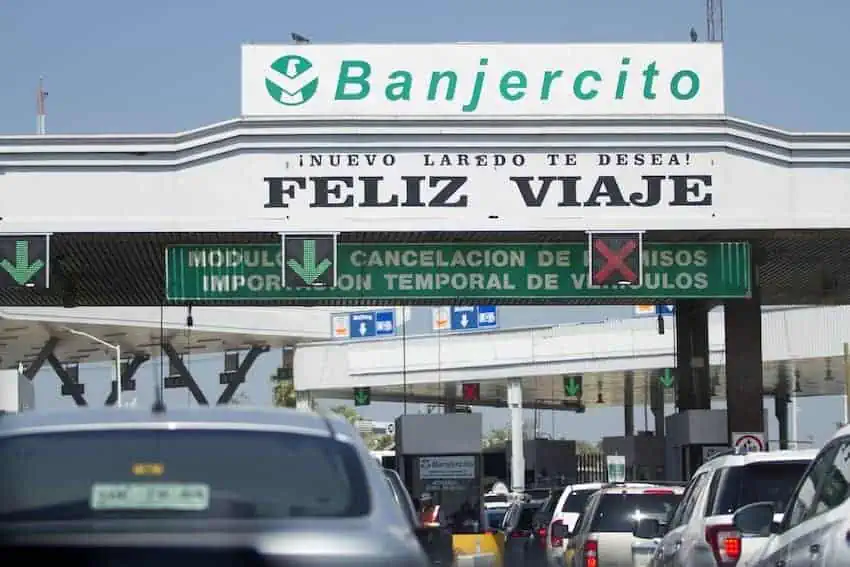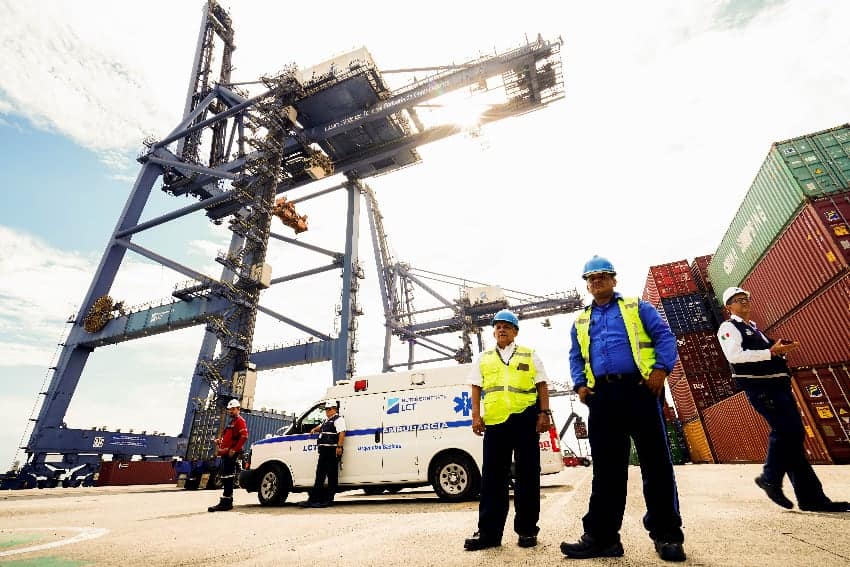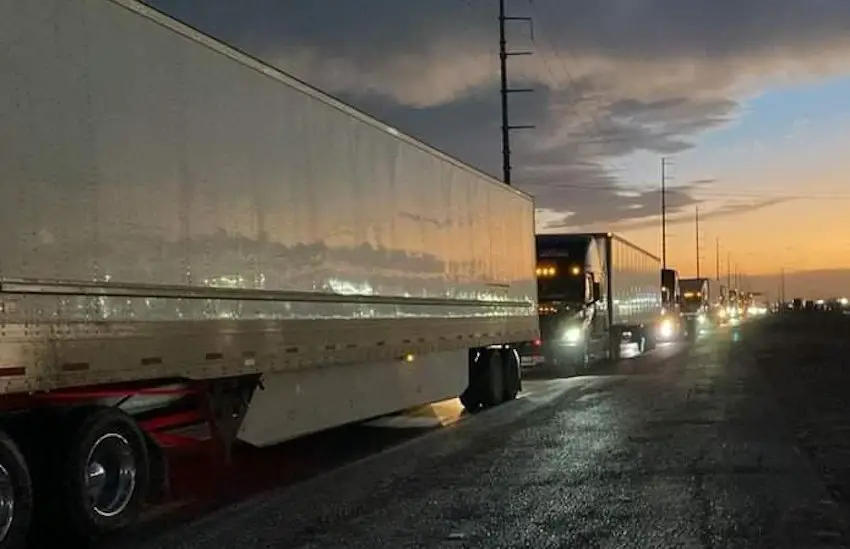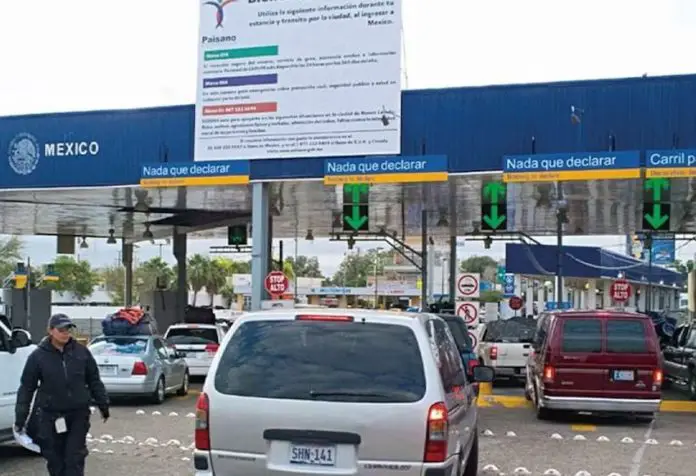Freight was held up at crossings on the Mexico-United States border on Tuesday, Wednesday and early Thursday due to “constant glitches” in customs’ computer systems, but authorities subsequently said that the problem had been resolved.
Seaports and airports have also been affected, with both exports and imports delayed for as long as 48 hours. The economic losses are expected to be significant.

All freight operations at International Bridge III in Nuevo Laredo, Tamaulipas, were suspended at 10 p.m. Wednesday due to “national level” glitches in customs systems, according to a statement issued by the National Customs Agency (ANAM), while problems were also reported at the Córdova of the Americas International Bridge in Ciudad Juárez, Chihuahua, and at the Colombia-Solidaridad International Bridge in Anáhuac, Nuevo León, among other crossings.
The Reforma newspaper reported that all 50 customs offices across Mexico were unable to issue new export and import documents electronically on Tuesday and Wednesday and had to revert to “manual processes.”
The federal tax agency SAT, which formerly managed customs and retains responsibility for some customs systems and processes, said Thursday that “all activities at customs” had been normalized, while ANAM said that “intermittence” in the customs declaration validation system had been resolved.
However, several private sector associations said that problems persisted.
“Not everything is resolved because you can’t pay [customs duties], the majority [of exporters and importers] are having problems,” Alfonso Rojos, an official with the World Customs Organization, told the El Universal newspaper.
He said that ships at Mexican ports were also affected by the problems with customs systems. Cargo arriving at airports has also faced delays, according to reports.
“Ships are arriving at ports, the problem is they can’t leave and they’re saturating ports and they can’t … [offload], which could affect all sectors — medicines, auto parts,” Rojas said.
He has worked as a customs agent for more than 30 years, but told El Universal he couldn’t recall a problem at customs that had lasted so long.

“There has always been intermittence [in customs systems] … but something like this that lasts a day and a half or two days, … I can’t remember that,” Rojas said.
“The problem is big and the truth is that I’m very worried about the situation because foreign trade is extremely import for the country,” he said a day after U.S. data showed that Mexico was the top exporter to the United States last year.
“I can imagine the pressure they have at customs right now, but the [issue] has to be resolved so that it doesn’t happen again”, Rojas said.
Fernando Ramos Casas, president of the Maritime Port Council, said Wednesday that “Mexican foreign trade” was “stalled.”
“We’re facing a very serious problem and nobody is accepting the consequences. It’s been almost two days and we don’t have a statement from customs or SAT,” he said.
“What we’re sensing is that SAT is saying, ‘the systems aren’t working, but we don’t care,’ and Customs is saying, ‘the systems aren’t our responsibility and we don’t care either,'” Ramos said.
Long delays in Nuevo Laredo, Ciudad Juárez and Tijuana
The National Chamber of Trucking said that as many as 7,000 trucks had been left stranded in Nuevo Laredo due to ANAM’s inability to process or issue import and export documents.

Some 40% of products transported from Mexico to the United States and vice versa passes through Nuevo Laredo, located opposite Laredo, Texas.
The newspaper El Mañana reported that trucks were banked up for kilometers at both sides of the crossing between Nuevo Laredo and Laredo. The Milenio newspaper reported Thursday afternoon that the problems in Nuevo Laredo had been resolved.
Long lines of trucks were also reported in Ciudad Juárez on Wednesday.
Marcelo Vázquez, president of the Chihuahua branch of the National Association of Importers and Exporters of the Mexican Republic, said that large economic losses were expected due to the delays. He said that loads of perishable goods were at particular risk and asserted that the situation was becoming more critical by the hour.
Canacar official Israel Delgado Vallejo said that heavy economic losses were also expected due to delays at border crossings in Tijuana. The newspaper El Sol de Tijuana reported that freight began crossing at 8 a.m. Thursday morning after more than 24 hours of problems at customs.
The Mexican Meat Council (ComeCarne) warned that delays in receiving imports via northern border crossings could cause “a shortage of raw materials for food production.”
It said Wednesday that some plants had already been force to cease production due to a lack of inputs.
In 2023, Mexican exports also faced delays getting to delivery points in the United States due to stringent truck inspections introduced by the Texas government as part of its efforts to prevent the entry of undocumented migrants and illicit drugs.
Goods worth more than US $1.5 billion were held up at the northern border at one point in early October, according to Canacar.
With reports from El País, El Universal, El Economista, El Financiero, Reforma, Milenio, El Mañana and Forbes México
